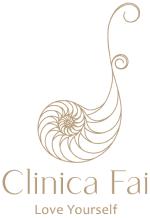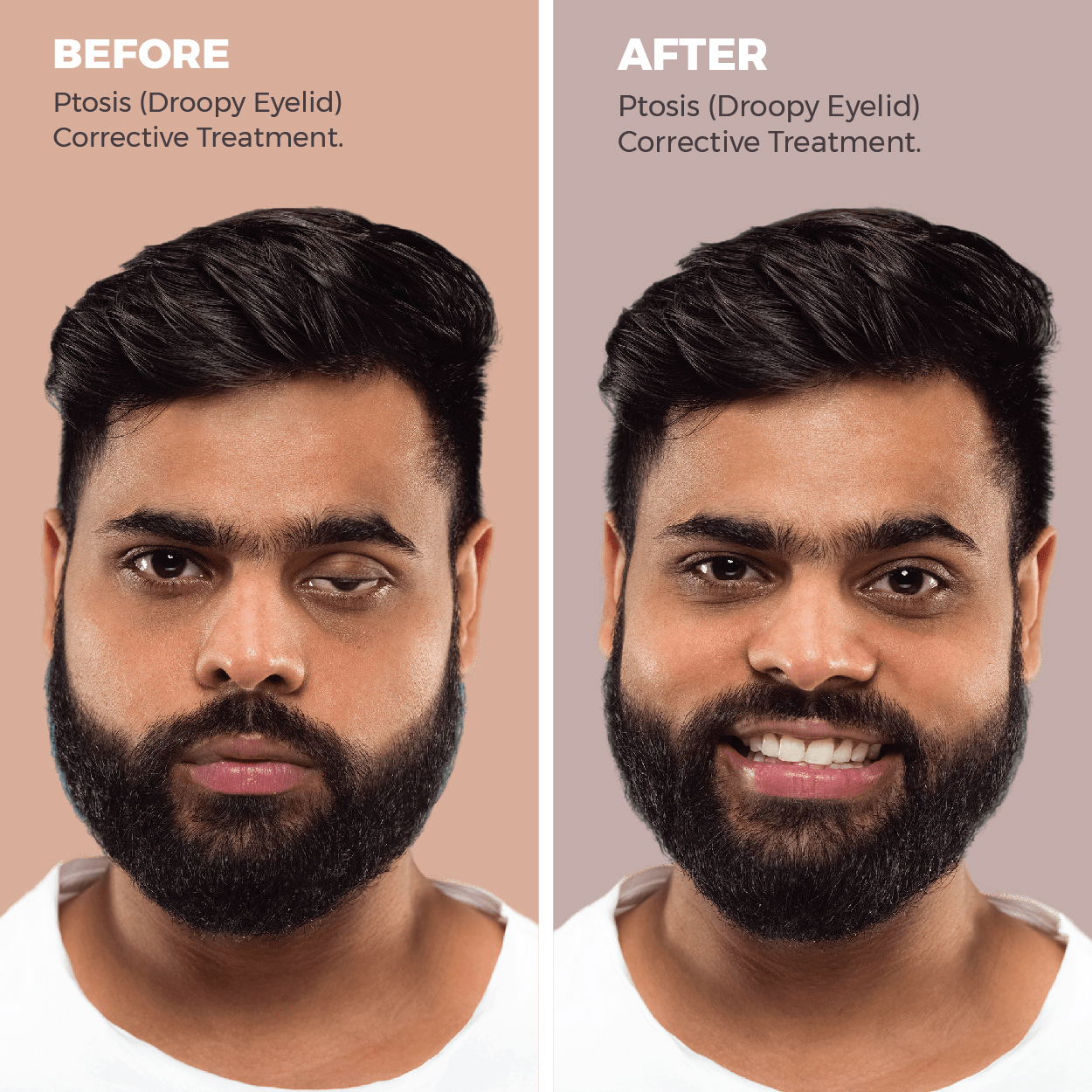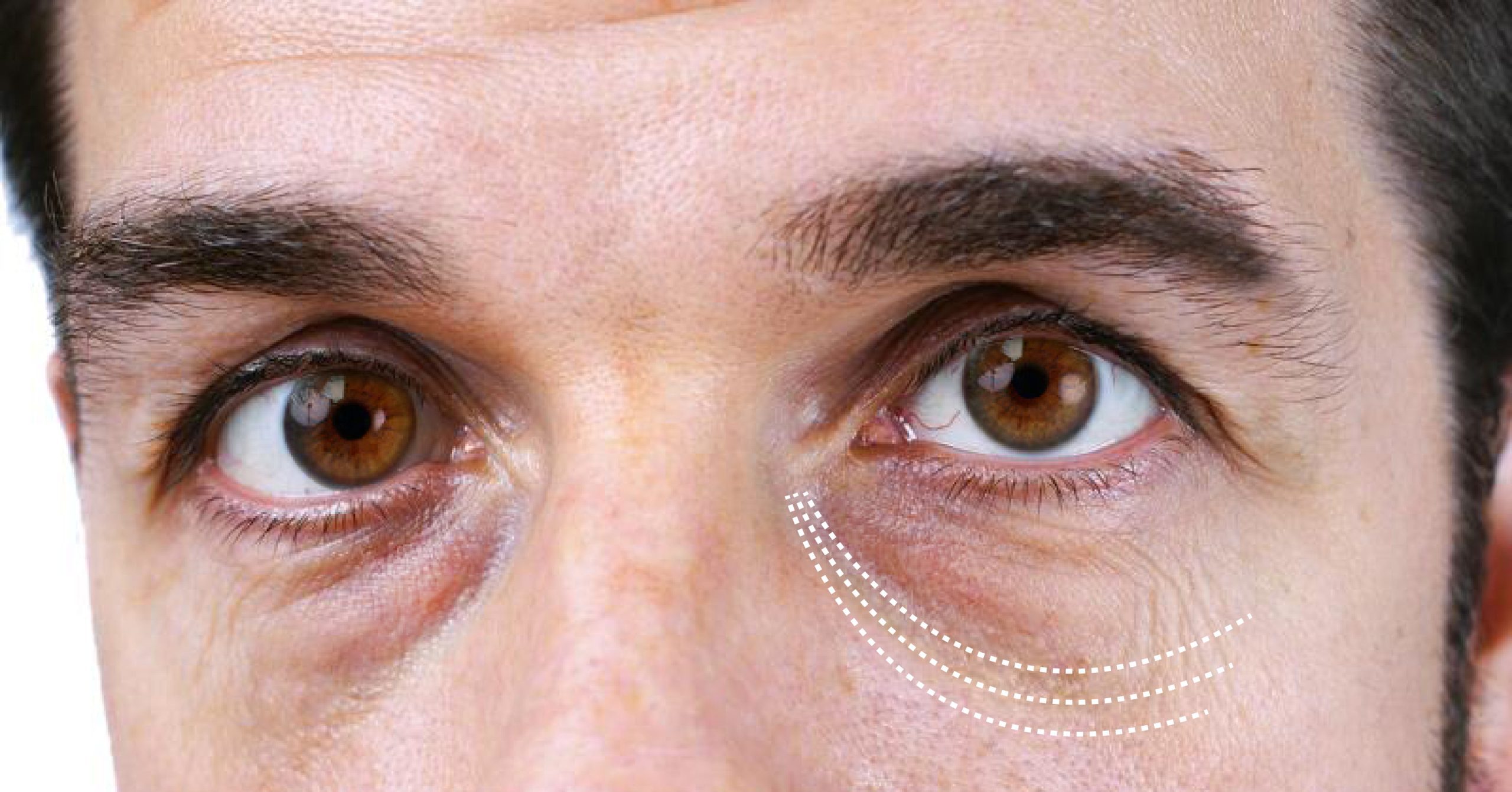Ptosis Surgery: Safe Treatment For Children & Adults
Have you been told you look tired or sleepy? Do your upper eyelids droop ever so slightly? Or does one of your eyes appear bigger than the other? If you’re experiencing these issues, then you may have ptosis.
Ptosis (droopy eyelids) or blepharoptosis is when the upper eyelids droop over the eyes. The disease might look bothersome and can cause functional problems for you, like obstruction in the visual field, difficulty in reading, headaches or decreased vision (mainly in children).
This write-up will walk you through specific ptosis surgery performed at Clinica Fai, India’s leading 360 deg clinic for eye and face plastic surgery.
Let’s dive in.
Ptosis Repair Surgery – what is it?

Ptosis is a medical term that refers to drooping or sagging of the upper eyelid. It can occur in one or both eyes and can be a cosmetic issue or a functional problem, depending on the severity of the drooping and its impact on vision. Ptosis surgery, is a procedure that is used to correct ptosis by tightening or repositioning the muscles and tendons that lift the eyelid.
Ptosis surgery is generally considered to be a safe procedure, and it can be performed on children and adults. It is also important for patients to follow all of their surgeon’s pre- and post-operative instructions to ensure the best possible outcome.
The reasons for ptosis
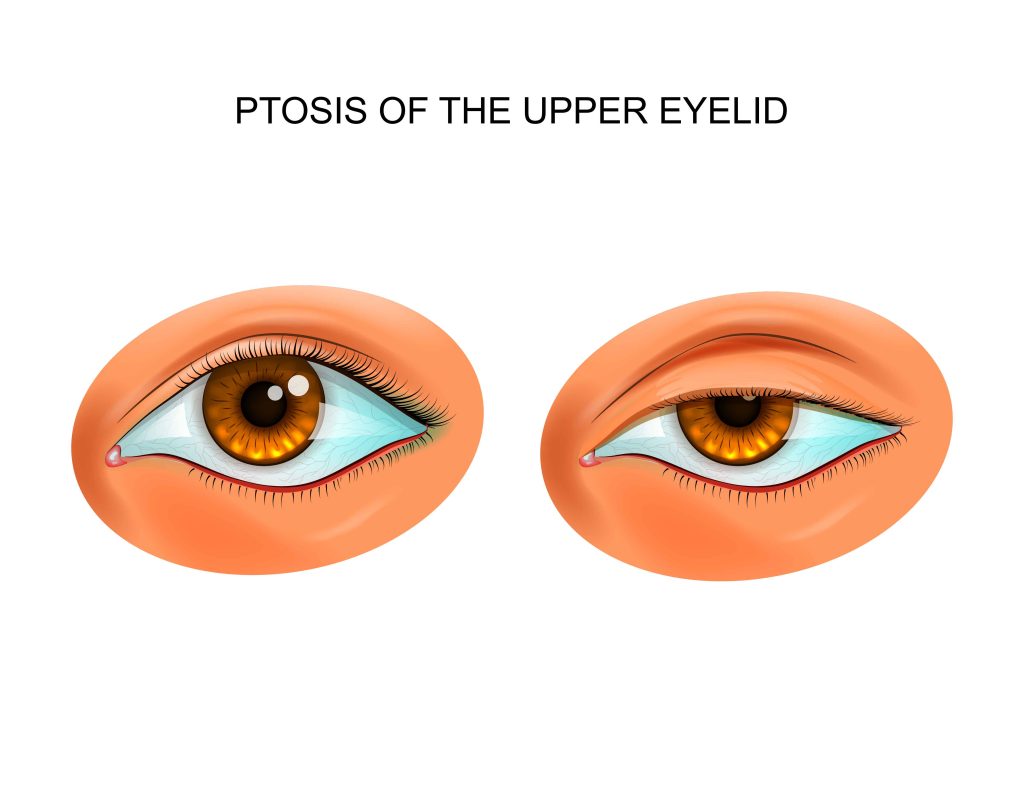
There are many reasons why children or adults get ptosis. Ptosis can be congenital (present at birth) or acquired (developed after birth)
- Congenital ptosis: This type of ptosis is caused by abnormalities in the development of the muscles that lift the eyelid (levator muscles). It may be inherited or occur spontaneously.
- Acquired ptosis: This type of ptosis can be caused by a variety of factors, including trauma, inflammation, infection, or neurological conditions.
- Myogenic ptosis: This type of ptosis is caused by abnormalities in the muscles that lift the eyelid.
- Neurogenic ptosis: This type of ptosis is caused by damage to the nerves that control the muscles that lift the eyelid.
- Mechanical ptosis: This type of ptosis is caused by an external force that pulls the eyelid down, such as a tumour or cyst.
- Aponeurotic ptosis: This type of ptosis is caused by a thinning or stretching of the tendons that support the eyelid.
- Asymmetry of the eyelids
The best way to minimise the risks of ptosis surgery is to choose a qualified and experienced oculoplastic surgeon to perform the procedure. It is also important for patients to follow all of their surgeon’s pre- and post-operative instructions to ensure the best possible outcome.
Ptosis surgery for children
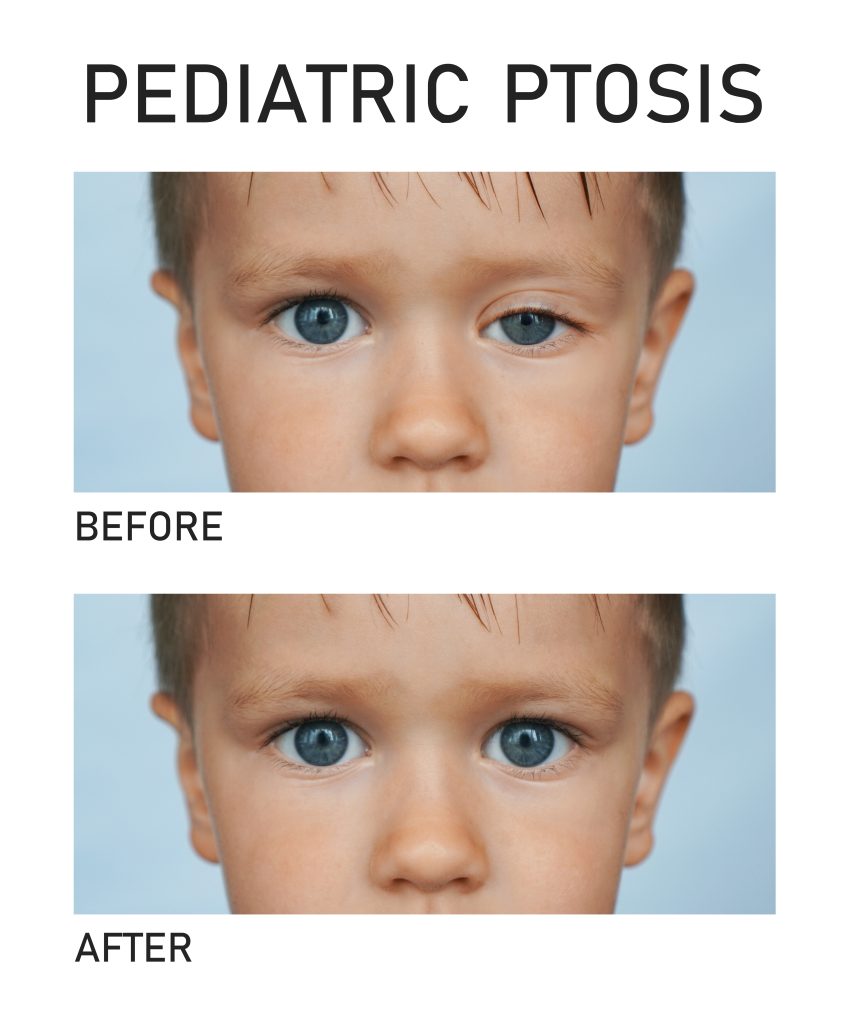
It is important to have ptosis evaluated by a medical professional to determine the cause and appropriate treatment. A child with ptosis can tip his head back or raise his eyebrows to try to see clearly. Gradually, such movements cause headaches and neck problems. Ptosis can put a child at risk of vision problems.
When treating ptosis surgery in children, the oculoplastic surgeon considers the following factors
- The child’s age
- The eyelid height
- Eye’s movement
- Strength of the eyelid’s muscle
- Is one or both eyelids are involved
After determining these factors, the doctor performs ptosis surgery for the patient.
Ptosis surgery for adults
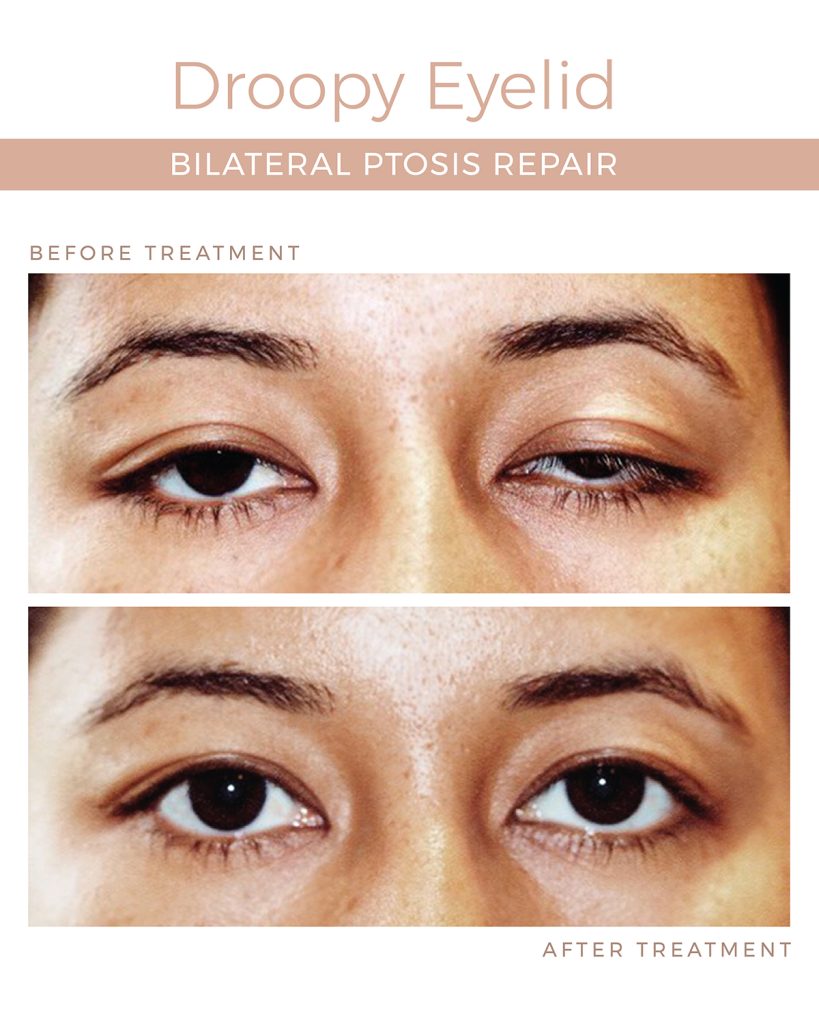
The ptosis surgery is usually done as an outpatient surgery, which means the patient can go home the same day., Anaesthesia is used to numb the eyes and the surrounding area to complete the procedure. The operation usually takes 45 to 90 minutes, depending on whether it includes one or both upper eyelids.
Connect With Clinica Fai for Ptosis treatment
Are they suffering from ptosis? Connect with Clinica Fai today. We have India’s leading oculoplastic surgeon supported by a team of qualified clinicians who can handle all eye and face issues. Our experts listen to patients’ queries and do the needful through their deep expertise. Further, after the ptosis surgery, our doctor will also recommend how to care for the eyes. Appointments are available to book today. For any queries or questions, please email us at [email protected] or call us at +91 62811 17454.
